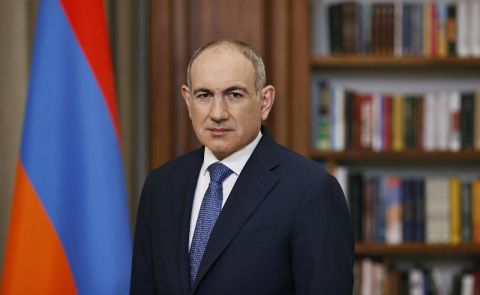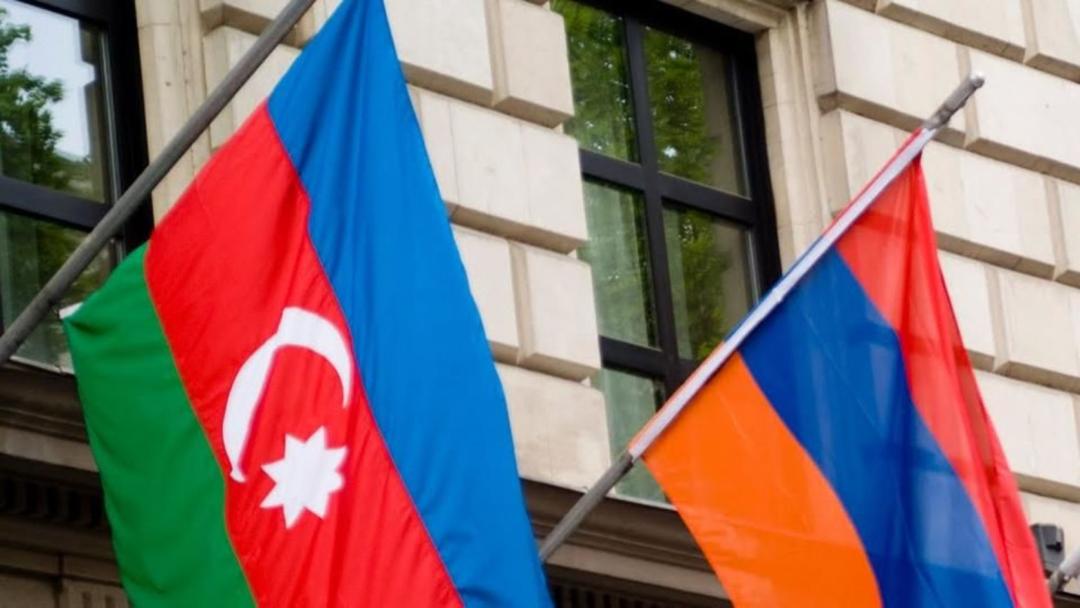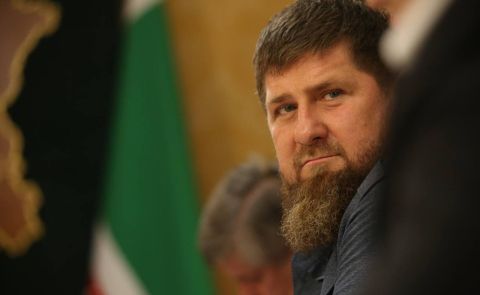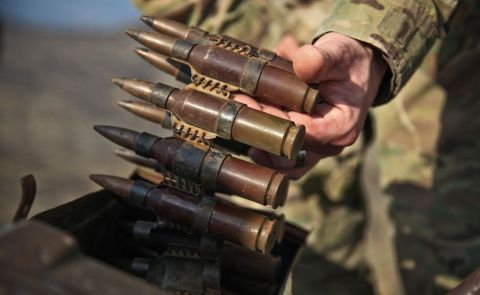
Armenia-Azerbaijan border crisis: Ayvazyan resigns; Azerbaijani soldier wounded

On 28 May, Armenia’s acting Foreign Minister Ara Ayvazyan submitted his letter of resignation from the post.
Ayvazyan gave no reasons for his resignation. He appeared to have resigned immediately after taking part in an emergency meeting of Armenia’s Security Council which discussed mounting tensions on the Armenian-Azerbaijani border. On 20 May, FactInfo reported that Ayvazyan was going to resign from his post following the country’s acting Prime Minister’s Nikol Pashinyan’s statement to sign a third document with Azerbaijan (Caucasus Watch reported). According to the media channel, Pashinyan's administration is making attempts through diplomatic channels to have Ayvazyan reverse his decision.
At the Security Council session, Pashinyan called for the deployment of international observers along portions of Armenia’s border with Azerbaijan. He said that Armenia and Azerbaijan should pull back their troops from the border areas and let Russia and/or the United States and France, the two other countries co-chairing the OSCE Minsk Group, deploy their observers to the area. “The presence of observers in those areas is necessary so that each side can be certain that the other complies with the agreement and does not mass troops along the border,” he said. The disengagement of troops and the launch of the monitoring mission, Pashinyan went on, should be followed by a process of “ascertaining border points” supervised by the international community. “If Azerbaijan really wants to ascertain [disputed] border points it should have no reason to reject this plan,” he added. “If we don’t follow this path the situation will inevitably get out of control,” he emphasised.
It was also reported that Armenia’s acting Defence Minister Vaghrshak Harutyunyan met in Moscow with his Russian counterpart Sergey Shoygu in order to enhance military cooperation between the two countries. “We are reinforcing our military cooperation both in bilateral format and in the side lines of the international structures and first of all CSTO,” Shoygu said in his opening remarks.
He said the contracts on creating United Troop and United Air Defence System are being successfully implemented. Shoygu stressed that the activity of the 102d Russian military base in Armenia is the index of high-level bilateral cooperation. He stressed the importance of the base, calling it an important factor for ensuring security in the region. He said during the meeting with Harutyunyan they will discuss the regional security issues, the work of the Russian peacekeepers in Nagorno-Karabakh and all the acute issues created at the moment.
On the other side, the Azerbaijani Ministry of Defence (MOD) reported that the Armenian armed forces fired from several directions at the positions of the Azerbaijani army near the Ashagi Buzgov settlement of the Babek district of the Nakhchivan Autonomous Republic on the night of May 27-28. As a result, Azerbaijani serviceman Elkhan Muradov was wounded.
Azerbaijan’s Ministry of Foreign Affairs (MFA) blamed Armenia for the incident. “Namely Armenia bears responsibility for this escalation that happened in the region. We call on Armenia to immediately stop acts of provocation, observe the inviolability of borders and refrain from actions that aggravate the situation in the region,” read the statement.
Azerbaijan’s Foreign Minister Jeyhun Bayramov called on Yerevan to avoid political hysteria when discussing the border delimitation issues. “Delimitation of borders should not be held in the form of a political hysteria, but in normal pragmatic conditions, and at the end each country should respect the internationally recognised borders,” he emphasised.
The Armenian MOD denied the statements from Azerbaijan’s state structures. "The Armed Forces of the Republic of Armenia did not open fire in the direction of Nakhichevan. Apparently, the reasons why the soldier was wounded should be [examined within] the problems associated with discipline and hazing in Azerbaijani army," the statement read.
The arising tensions between Armenia and Azerbaijan also prompted reactions from the US, France and the OSCE. “The US is concerned by recent developments along the international border between Armenia and Azerbaijan, including the detention of several Armenian soldiers by Azerbaijani forces,” read the statement of the State Department. “We call on both sides to urgently and peacefully resolve this incident. We also continue to call on Azerbaijan to immediately release all prisoners of war and other detainees, and we remind Azerbaijan of its obligations under international humanitarian law to treat all detainees humanely,” it further read. “We reject the use of force to demarcate the border and call on both sides to return to their previous positions and to cease military fortification of the non-demarcated border and the emplacement of landmines. Specifically, we call on Azerbaijan to relocate its forces to the positions they held on 11 May. We also call on Armenia to relocate its forces to the positions they held on 11 May, and welcome statements of intent to this effect. These actions will de-escalate tensions and create space for a peaceful negotiation process to demarcate the border on an urgent basis. The United States is prepared to assist these efforts,” the statement concluded.
France expressed its deep concern over the increasing number of incidents on the border. France's Ministry of Foreign Affairs urged the parties to show the utmost restraint and to refrain from any provocation. It said the demarcation and delineation of the border between the two countries must be done through negotiations between the parties, rather than through actions on the ground. It also reaffirmed French President’s Emmanuel Macron’s statement of 13 May where he reaffirmed France's commitment to the territorial integrity of Armenia and stressed the need for the immediate withdrawal of the Azerbaijani armed forces from the sovereign territory of Armenia.
The OSCE also expressed its worries over the latest developments on the border. “Concerned about repeated reports of incidents on the Armenia-Azerbaijan border. All outstanding issues must be resolved peacefully through negotiation. OSCE stands ready to assist and implement confidence-building measures to create an atmosphere conducive to dialogue,” said the OSCE Chairperson in Office Ann Linde. The EU High Representative for Foreign Affairs and Security Policy Josep Borell announced that a group of EU Ministers would soon travel to Armenia, Azerbaijan and Georgia to reaffirm EU’s readiness to be involved in current events in the region.
See Also


Ramzan Kadyrov Awards Title to Ingush Businessman

Azerbaijan Announces Large-Scale Gas and Renewable Energy Projects in Karabakh

Weekly Brief on Military Situation in South Caucasus Countries (26 May – 1 June, 2025)

Supreme Spiritual Council Condemns Armenian PM’s Anti-Church Remarks as “Illegal and Destructive”

